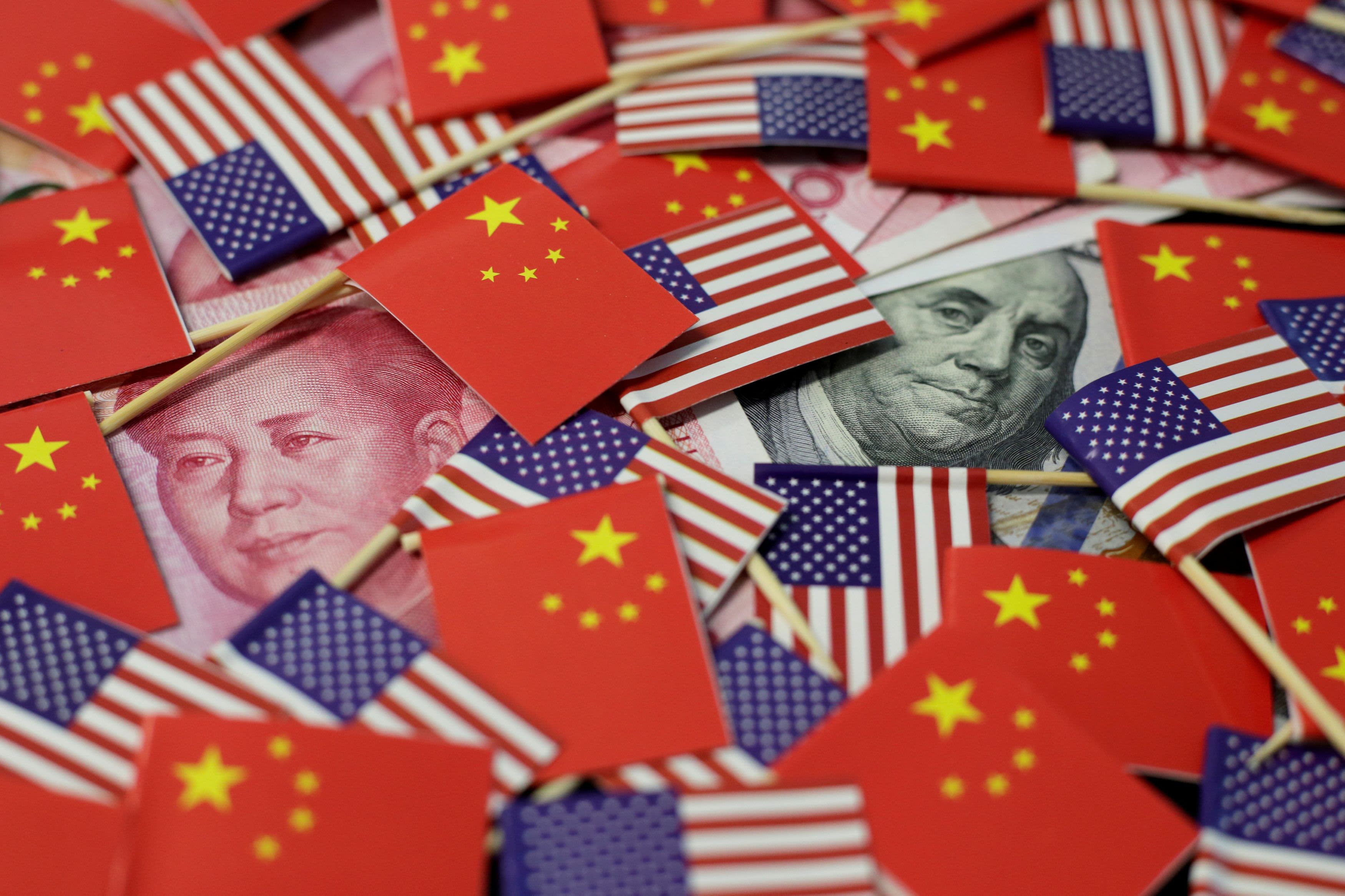Jason Lee | Reuters
BEIJING — As the U.S. pumps trillions of dollars into its economy in the wake of the coronavirus pandemic, economists are concerned about spillover effects in China, including the risk of “imported inflation.”
Worries about high inflation, or rapidly rising prices, hit U.S. markets last week. The U.S. Congress is reviewing a $1.9 trillion stimulus plan that critics say could cause inflation to soar, and add to debt levels that rose following last year’s historic $2 trillion stimulus package.
In China, economists are wary of risks to growth as the country tries to recover fully from the shock of the pandemic.
“The large-scale issuance of U.S. Treasurys, and the rapid expansion of the Federal Reserve (balance sheet), have increased the spillover effect of U.S. macro policies,” former finance minister Lou Jiwei said in an article published in the latest issue of the government-affiliated journal “Public Finance Research.” That’s according to a CNBC translation of the Chinese text.
Lou said the effects from major countries’ policies will hit emerging countries economically and financially. “We are facing major changes not seen for a century,” he said.
Lou is also the head of the foreign affairs committee of the Chinese People’s Political Consultative Conference — the political advisory body meeting during the annual “Two Sessions” parliamentary gathering that began this week.
China’s monetary policy
As part of the parliamentary meeting, Premier Li Keqiang announced Friday a growth target of over 6% for 2021, and said the government would keep monetary policy “at a reasonable and appropriate level.”
Analysts are watching the week-long meeting for any details on how leaders might alter China’s monetary policy given the economy’s overall recovery from the shock of Covid-19.
Covid-19 first emerged in the Chinese city of Wuhan in late 2019. Stringent lockdowns in China allowed the country to control the domestic outbreak within months, but not before the pandemic spread throughout the world.
The coronavirus has hit the U.S. the hardest with more than 28.8 million cases and 520,000 deaths, according to data compiled by Johns Hopkins University.
The U.S. and Europe have pursued extraordinary monetary policy in the last two years, said Zhang Cheng, director of credit at Bluestone Asset Management, referring to historically low interest rates and other policies to support economic growth. That’s caused a rise in commodity prices and pressure from “imported inflation” in China, he said, according to a CNBC translation of his Mandarin-language remarks.
Zhang added that China should protect itself from risks by avoiding U.S. dollar-denominated assets.
The country is the world’s second-largest holder of U.S. Treasurys and has $3.2 trillion in foreign exchange reserves, mostly denominated in the U.S. dollar.
When moving toward tighter policy, Chinese monetary policy will need to consider external risks, such as the potential for “imported inflation” and the long-run depreciation of the U.S. dollar as a result of stimulus in the U.S., JD Digits economists Shen Jianguang and Zhang Mingming wrote in a commentary piece carried by a state news agency last week.
Such a decline in the greenback would affect the security of China’s foreign exchange reserves, making efforts to increase international use of the yuan more important, the authors said.
As for near-term inflation concerns, analysts are watching the surge in prices for many commodities, of which China is the world’s largest consumer. Last month, copper prices rose to their highest since 2011. These price increases would raise production costs in China.
But analysts like Ma Yan, who covers foreign exchange at Hangzhou-based brokerage Nanhua Futures, expect the impact from such imported inflation will ultimately not be that great.
Instead, Ma is more concerned about how China can control its housing bubble, and is monitoring the credit and liquidity risk of real estate companies.
